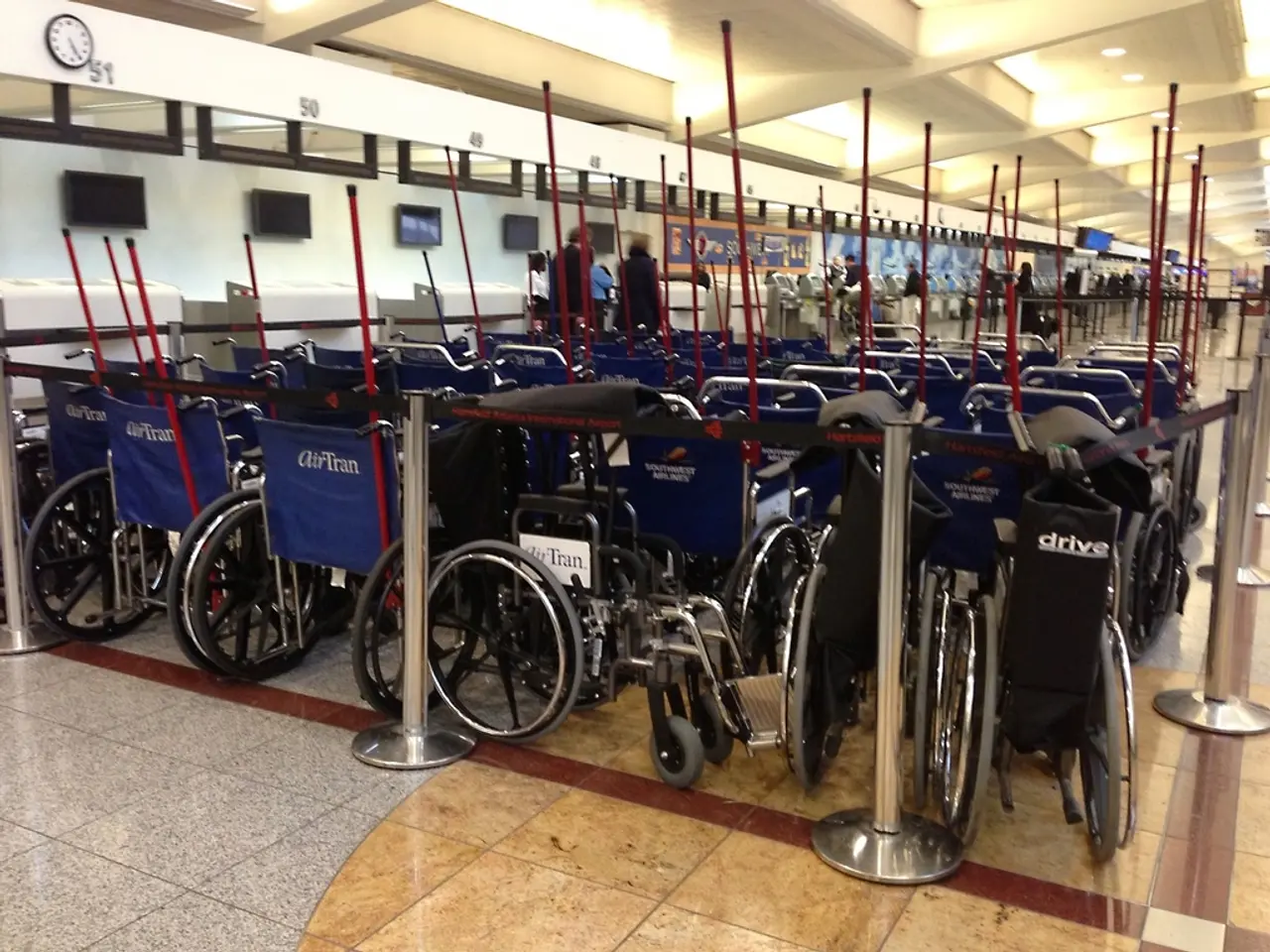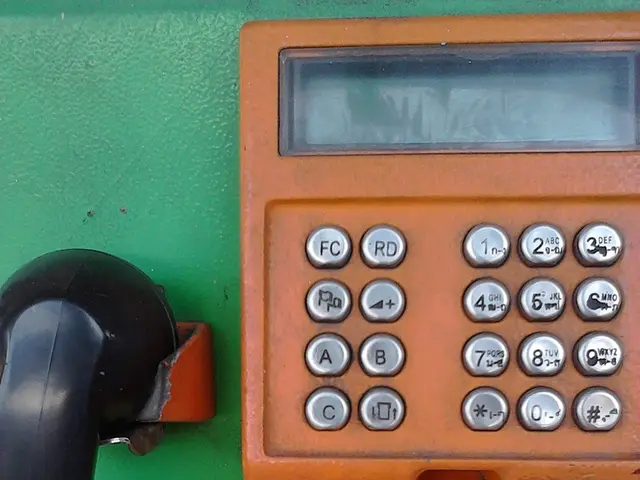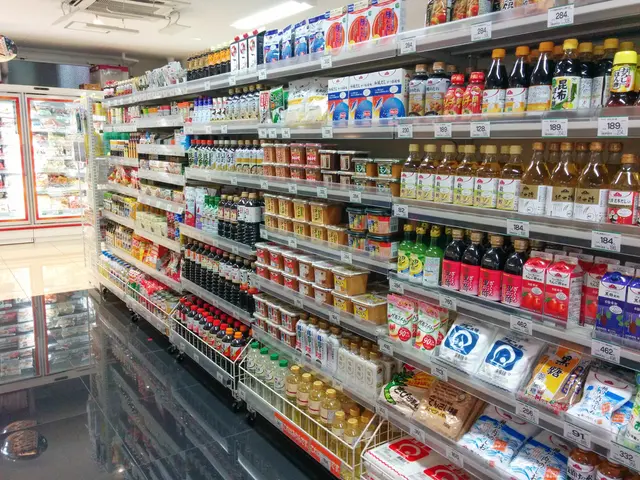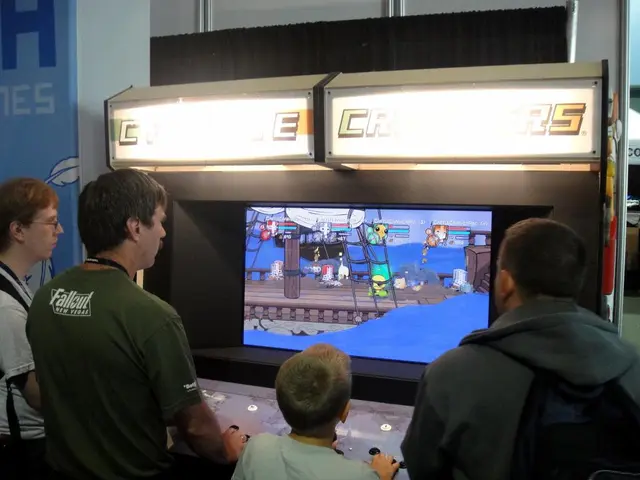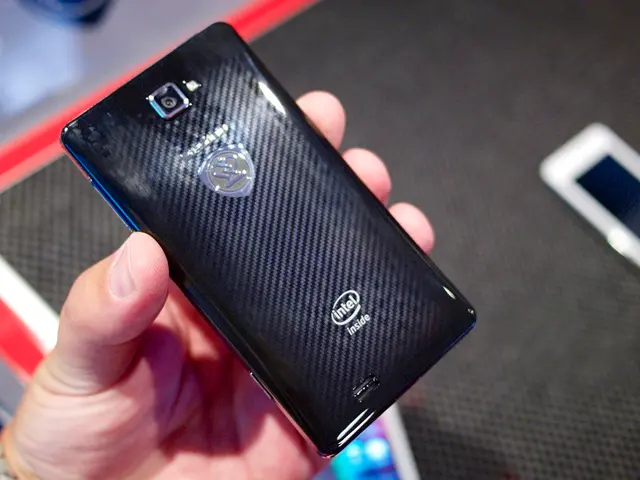Cutting-Edge Tech Showcases Toyota's Pledge Towards "Accessible Transportation for All"
Toyota, a global leader in automotive technology, is making significant strides in wheelchair mobility with its latest advancements. These include the development of electric wheelchairs like the Toyota JUU and the integration of one-touch fastening devices for wheelchairs.
The Toyota JUU, showcased at the 2022 International Home Care and Rehabilitation Exhibition, is an electric wheelchair designed with the joy of mobility in mind. It boasts a unique feature - a tail that drops down from behind the backrest, supporting the wheelchair when climbing stairs, allowing the user to ascend unassisted. On the descent, the tail prevents the wheelchair from tipping over, maintaining a stable position. This innovative design opens up the possibility for wheelchair users to visit places like shrines and temples without assistance.
One of the key innovations in the Toyota JUU is the use of electric power steering motors from cars, improving safety by preventing tire counter-rotation during ascent and descent. This feature ensures a smoother and safer mobility experience for users.
Toyota's commitment to mobility solutions extends beyond traditional vehicles. The company is investing in expanding its role in mobility, supporting accessibility through adaptive driving aids and mobility conversion options. For instance, the Toyota Sienna Hybrid FlexMaxx® rear-entry conversion, launched recently in the U.S., offers a convenient solution for wheelchair users.
Toyota's one-touch fastening device simplifies securing a wheelchair inside the vehicle, reducing physical effort and setup time. This innovation, which Toyota plans to make available for various types of vehicles, including ships and airplanes, promises to provide a more user-friendly mobility experience for wheelchair users.
In a move towards smarter, more autonomous mobility, Toyota is a key investor in companies like May Mobility, which develops autonomous and assistive mobility technologies. These partnerships broaden accessible transportation options, indicating a trend towards a future where people with disabilities can enjoy the benefits of autonomous mobility.
Toyota's guiding principle as a mobility company is "Mobility for all," a belief rooted in the October 2017 press release announcing Toyota's transformation into a mobility company. The company is continuing to develop the JUU technology to give unaided wheelchair users greater range and freedom of mobility.
In the near future, Toyota will offer the piloted e-Palette for public services in the first half of the 2020s. The e-Palette, developed with partners Woven by Toyota and Denso, is intended to serve people in mountainous and sparsely populated regions, or those who have difficulty traveling for themselves, expanding the concept of freedom of mobility. The e-Palette can be modified to serve as a convenience store, cafe, mobile delivery lockers, or an apparel shop, making it a versatile solution for various needs.
Toyota is also part of a consortium with other car, bus, and wheelchair manufacturers, working to standardize anchor bars mounted at the base of wheelchairs. This collaboration aims to provide a more seamless and efficient mobility experience for wheelchair users across various vehicles and environments.
In summary, Toyota's recent wheelchair mobility advancements involve the development of electric wheelchairs like the JUU, the integration of one-touch fastening systems, the launch of accessible vehicle conversions, and investments in autonomous and smart mobility partnerships. These innovations are a testament to Toyota's commitment to "Mobility for all" and its vision of a future where people with disabilities can enjoy the benefits of advanced mobility solutions.
The electric wheelchair, Toyota JUU, is designed with a unique feature that allows wheelchair users to climb stairs without assistance and maintain stability during descent. Toyota is expanding its role in mobility by investing in adaptive driving aids, mobility conversion options, and autonomous mobility technologies. The one-touch fastening device developed by Toyota simplifies securing a wheelchair inside vehicles, aiming to provide a more user-friendly mobility experience for wheelchair users. Toyota's vision of "Mobility for all" is reflected in its various innovations aimed at enhancing the mobility experience for people with disabilities, including investments in smart-home devices, financing solutions for businesses, and partnerships with autonomous mobility companies.
